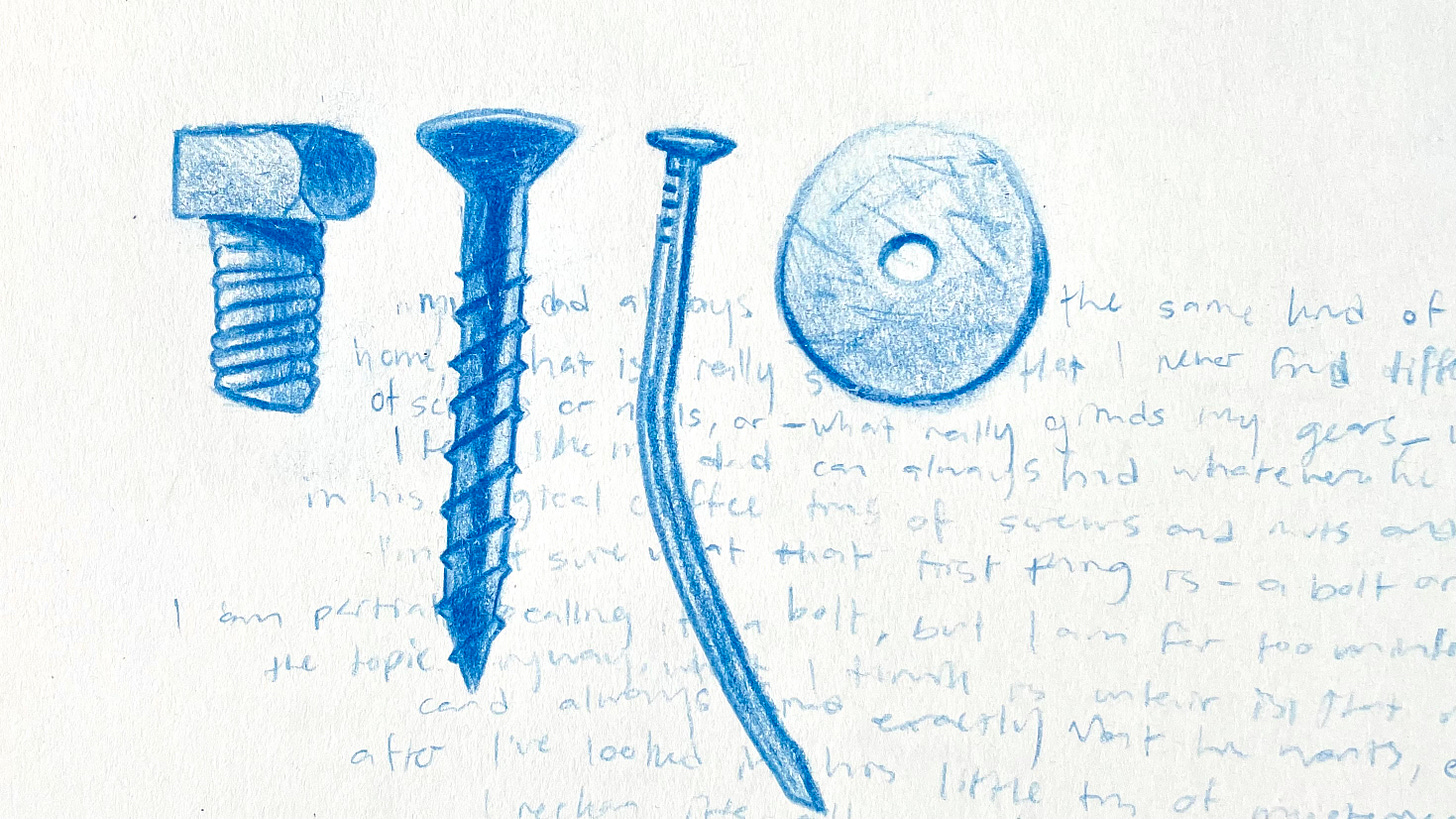Pseudo-patriarchal.
Discovering hereditary habits.
I have become the Trash-man of Berlin. I am appalled to see the flagrant littering in the city. I routinely observe smokers flick their cigarette butts onto tram lines or drop them to the curb where they are stomped on and promptly left to pollute the world and my mood. I never make the eight minute trip from my nearest train station home without spotting dozens of torn chip packets, wadded up miscellaneous items of clothing and copious other forms of flotsam and jetsam. This week, on my way home, I walked past an empty water bottle and a leftover packet of sweets half buried in the early autumn leaves on the sidewalk outside of a primary school. Having caught my eye and heart, I couldn’t leave them where they lay. I bent down and picked them up, intent to actually make use of one of the dozens of public bins that are fastened to every third lamppost. I received a very intense stare from a young woman that passed me as I did this, I am still unsure whether it was related to my cleaning up the neighbourhood or not.
My father does this. He either goes on a run or walks the dog every day. He leaves the house empty-handed but invariably returns with several items to that he picked up in our neighbourhood, taking it upon himself to clear our streets of litter. The trash he usually returns with are empty, discarded cans and bottles of alcohol. He, Mom and I often laugh about this, joking about how odd it must be to see a man in his fifties out walking his dog with three empty bottles of beer in-hand. The neighbours must wonder about our home life…Every day, without fail, he returns home having picked up some litter. It’s disappointing, how much litter pollutes our little neighbourhood in the suburbs of Cape Town. If I were to try to clear my neighbourhood streets in the middle of Berlin every time I left the house, I’m not sure I’d ever get back home.
My father’s litter collection habit has never bothered me much. And why should it? It is, if anything, commendable. Not everything he brings home, however, makes it to the recycling bin. On the garage windowsill sit two coffee tins (which themselves must be ancient because I haven’t seen coffee sold in a tin in the last decade) that are full of rusted nails and screws, all of which have been collected from the road but deemed too valuable to throw away. There is no screw too rusted nor nail too bent to disqualify it from rescue. A few washers roll around the bottom of the tins, and the only reason that they don’t have a tin all their own is because Dad simply doesn’t find enough. Unfortunately, when Dad is inevitably asked to fix something, his buckets of street-screws are usually considerably useful, which, much to my chagrin, nullifies most of my eye rolls. Thankfully, justifying my attitude, screws are not the only collection on my father’s island of broken toys. Old, half-functioning lawn lanterns; partially destroyed, barely recognisable electronics; miscellaneous cables; a pair of shorts, once (in surprisingly reasonable condition). Dad isn’t just chucking the bottles and chip packets away to clean the streets, he’s also a sympathiser of broken things, fixing them up a little, or collecting them to be fixed at a later date. That, of course, means that our garage is home to these various collectibles. It always irked me. If something was broken beyond repair, it should have been thrown away! LEDs that lost their translucent housing were given plastic bottles as replacements and called fixed. There was always an ugliness in that to me. I wanted everything in our house to be new and pretty.
But I don’t live in our house anymore. Here in Berlin, there’s a tradition to place your unwanted items—sometimes a little damaged, sometimes not at all—in a cardboard box on the street with the sign Zum Verschenken (to be given as a gift). Teapots and lamps, old textbooks and blinds all wait to be recognised as worthy of being taken home by a stranger. I’ve even seen whole couches left of the road like this. I am shocked when I walk past some of the things people want to get rid of. An interior design studio was throwing away about a hundred material samples. I couldn’t let that go to waste. I started making things from the samples, a practise well known to me after having experimented with several leather samples given to me by my grandfather, who worked in the shoe industry. When I spotted two curtains lying in a cardboard box next to my local skip while I walked home, I immediately planned how I could incorporate the material into my next creative project. The following week I had two massive styrofoam blocks occupying one corner of my bedroom because I had seen them lying on the side of the road and, naturally, they were the perfect size for another creative endeavour I had in mind. Practically everything in my room is in a state of repair or redesign and barely anything is new (aside from underwear and socks).
It’s funny how we become our parents, isn’t it? Not gradually. I looked at the corner of my bedroom that is now a dedicated home to the things I find on the streets of Berlin, and all at once, the haunting realisation dawned on me. Quite without realising it, I have become an echo of my father in yet another aspect of my life. Here’s to the broken things we insist aren’t broken yet, Dad.
My polystyrene idea was, regrettably, a flop, and after much vacuuming, my room is finally rid of all traces of that vile substance. If you enjoyed this journal, please subscribe.




